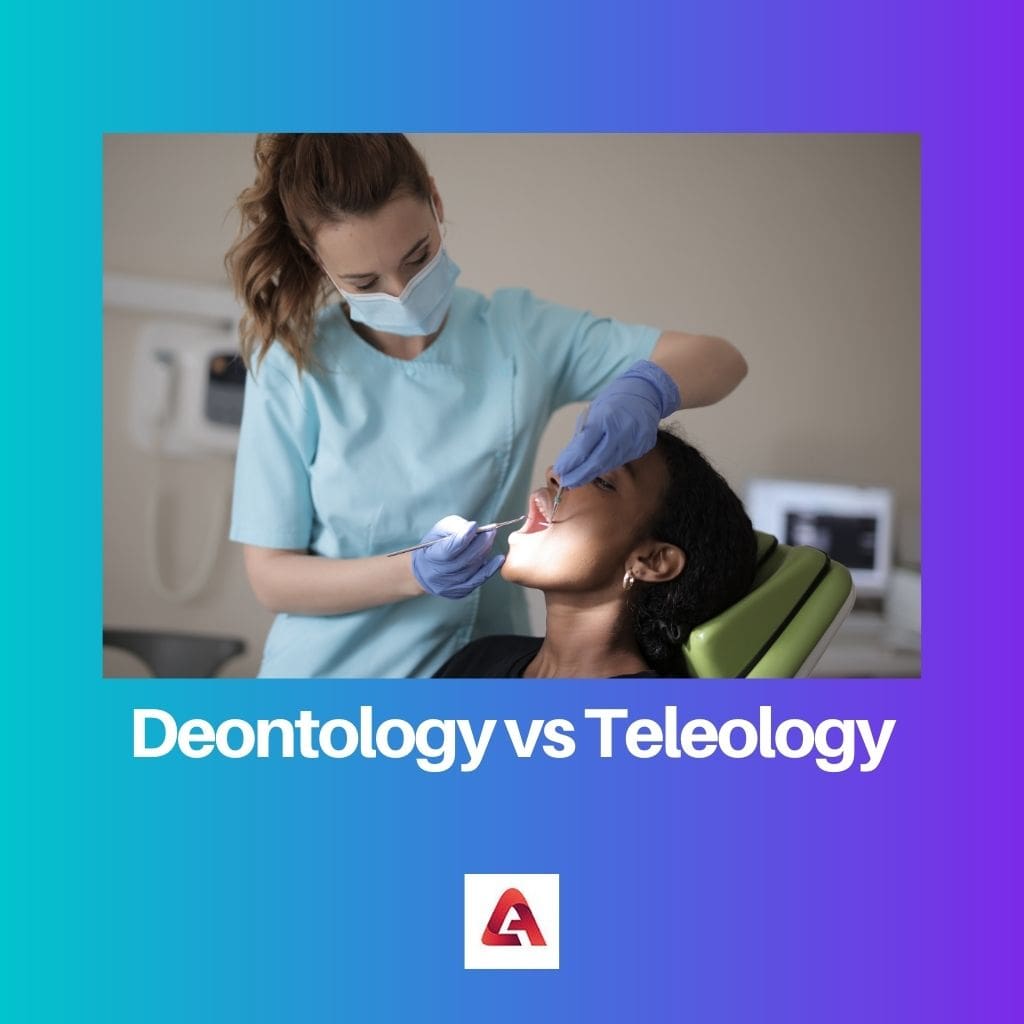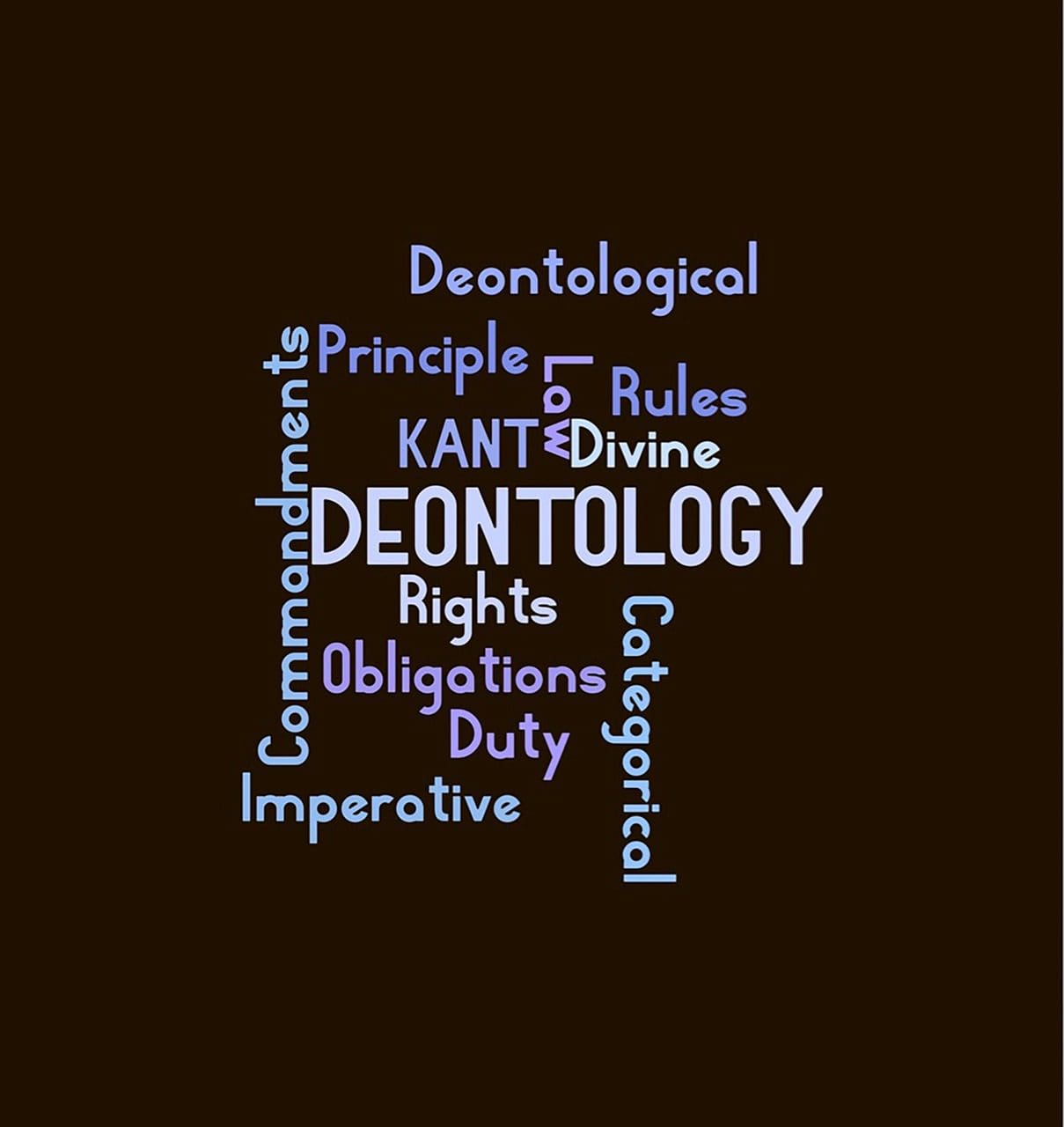Deontology and Teleology are both terms used in philosophy. The word Deontology is derived from Greek. It is made from the phrase deon, which means duty, and logos, which stands for study or science.
Conversely, teleology is made from the words telos, which stands for purpose or result, and logos, which means study or science. Thus, Teleology is the study of end goals and results.
Both branches of philosophy emphasized different aspects. One is more goal-oriented, while others focus on taking specific righteous actions to get results.
Key Takeaways
- Deontology is an ethical theory based on duty, asserting that actions are inherently right or wrong, regardless of their consequences.
- Teleology focuses on the consequences or outcomes of actions, arguing that the morality of an action is determined by its results.
- The two theories present contrasting approaches to ethics: deontology emphasizes rules and principles, while teleology prioritizes the greater good.
Deontology vs Teleology
Deontology and Teleology differ because the focus of both is different. Deontology focuses on the means, and teleology focuses on the results. One is duty-oriented, whereas the other is purpose-oriented.

Comparison Table
| Parameter of Comparison | Deontology | Teleology |
|---|---|---|
| Meaning | It is the branch of philosophy that studies morality and defines what is right and wrong. | The branch of philosophy studies the results or the purpose and questions its existence. |
| Focus | It focuses on achieving a goal and classifying whether the means are righteous. | It is focused on the justification of the means by relating it to the end. |
| Principle | Its foundation belief is that what you do to others comes back to you. | Its foundation belief is that any means is justified if it produces happiness and minor pain. |
| Teachings | It focuses on teaching moral values and righteousness. | It focuses on that if the end goal is achieved, all the means are righteous. |
| Perspective | It pays more attention to the values of each individual. | It pays more attention to studying past events and predicts future results. |
What is Deontology
Deontology is derived from two Greek words, namely Deon and logos. It is the study of duty. It studies the means to achieve a goal and then justifies whether they are righteous.
It is the study of right action. It says that the end does not justify the means and is based on the rule that whatever you do to others comes back to you completing a full circle.
One is agent-centered. It suggests that there is an agent as the reason for every action taken by use. The second is victim-centered. It is also called the patient-centered theory.
Immanuel Kant is a central figure of deontological theories. These theories enable a more general identification of what is right and what is wrong. It also has the potential to explain why some people are considered more morally stable than others and what triggers specific actions in people.

What is Teleology?
Teleology is the study of finality. It is also referred to as consequentialist theories. It emphasizes the results or goals and then tries to justify the means based on them.
One of the most common examples of Teleology was given by Aristotle. He said that an acorn’s internal telos is to become a mature oak tree.
These theories originated in the writings of Aristotle and Plato. Plato explained that natural teleology is the only way to justify the natural physical phenomenon.
Teleology plays a significant role in describing business and medical ethics in the modern world. For example, management by objective is a theory based on the Teleology theory.
In simple words, Teleology is more focused on the consequences of actions. It also tries to work on maximizing pleasure and minimizing pain.
J Benthem and JS Mill are the central figures in teleological theories.
Main Differences Between Deontology and Teleology
- Deontology is focused on the means, whereas teleology is focused on the results.
- Deontology is focused on studying individual values. In contrast, teleology is focused on studying past events that created results.
- https://www.sciencedirect.com/science/article/pii/S0148296396001439
- https://www.jstor.org/stable/2020659

The discussion on the foundational beliefs of both deontology and teleology is intriguing. It’s interesting to see how these philosophical concepts have shaped ethical thinking.
This article provides a thorough overview of deontology and teleology, delving into their meanings, key takeaways, and differences. The contrasting approaches to ethics are presented clearly and concisely.
I found this post to be very informative and enlightening. The comparison table is particularly useful in showcasing the differences between deontology and teleology.
The examples provided, such as Aristotle’s explanation of an acorn’s telos, make the content engaging and relatable. The post effectively illustrates the practical implications of teleology.
An excellent analysis of the nuanced differences that lie between these two key philosophical concepts. I am particularly interested in how deontology emphasizes rules and principles, while teleology prioritizes the greater good.
I disagree with the assertion that teleology claims any means is justified if it produces happiness and minor pain. This seems like an oversimplification of the theory.
A well-structured and insightful post that effectively explains the core ideas behind deontology and teleology. The references provided add credibility to the content.
The mention of Immanuel Kant and his influence on deontological theories adds depth to the exploration of deontology. His contributions to moral philosophy are significant.
The distinction between agent-centered and victim-centered deontological theories is an aspect that caught my attention. These theories offer valuable insights into moral reasoning.
The article does a commendable job of elucidating the concept of teleology and its relationship to business and medical ethics. The historical origins of teleological theories are well presented.